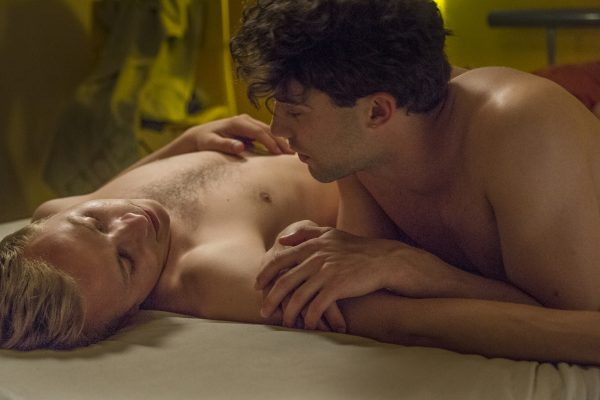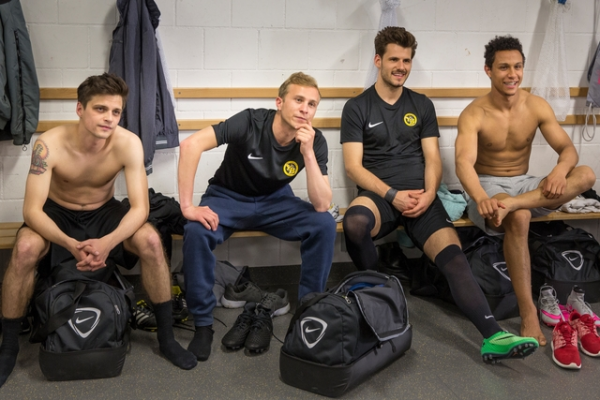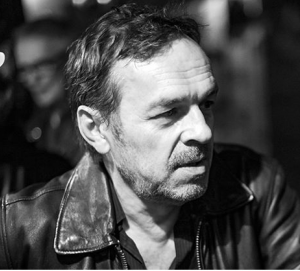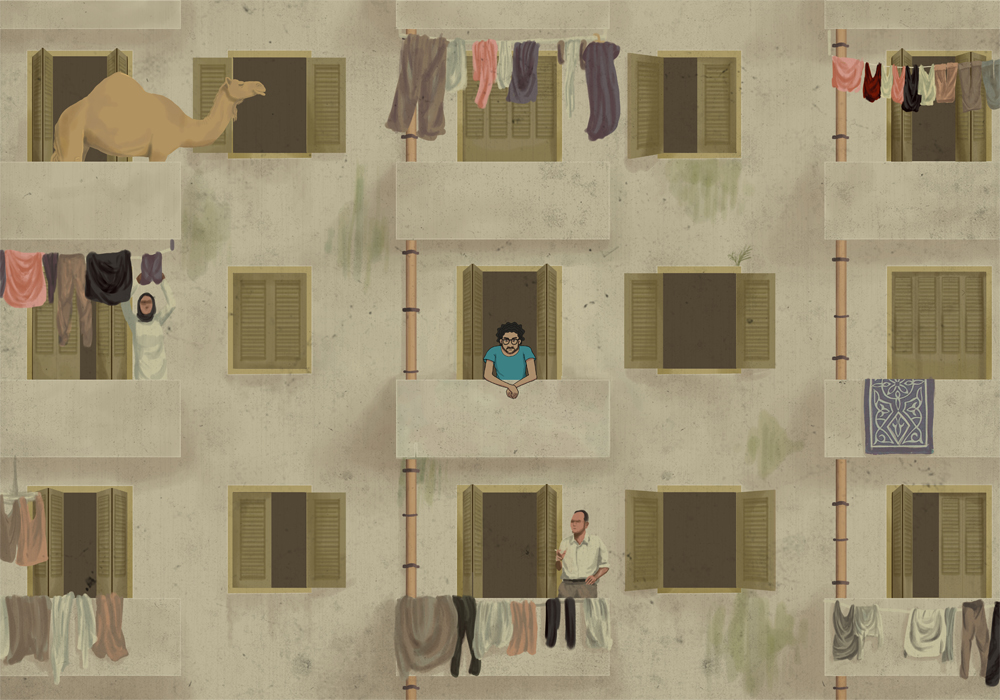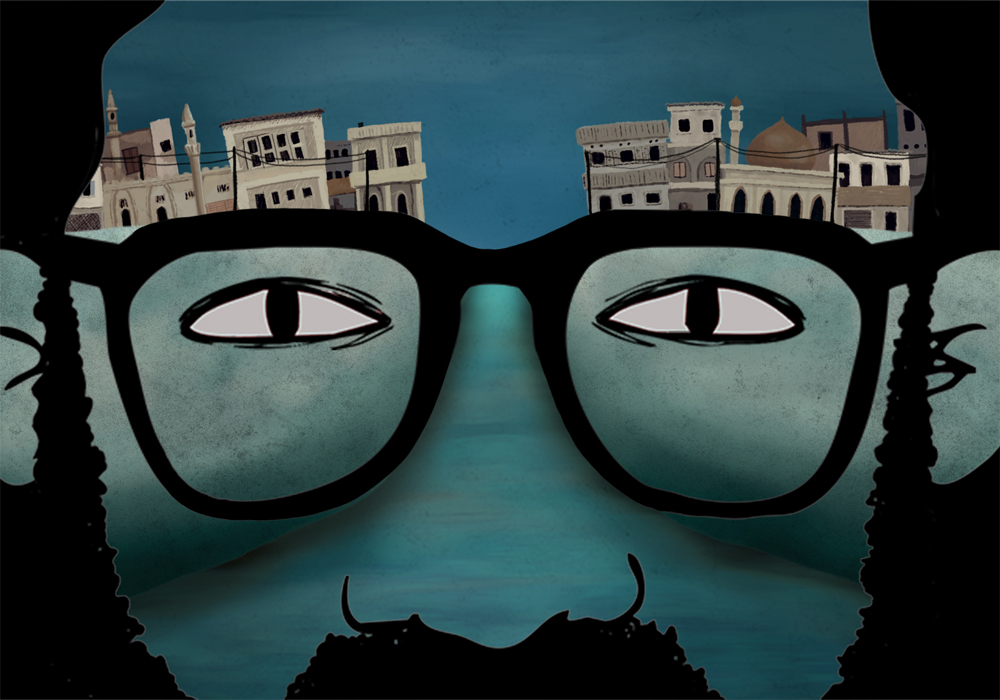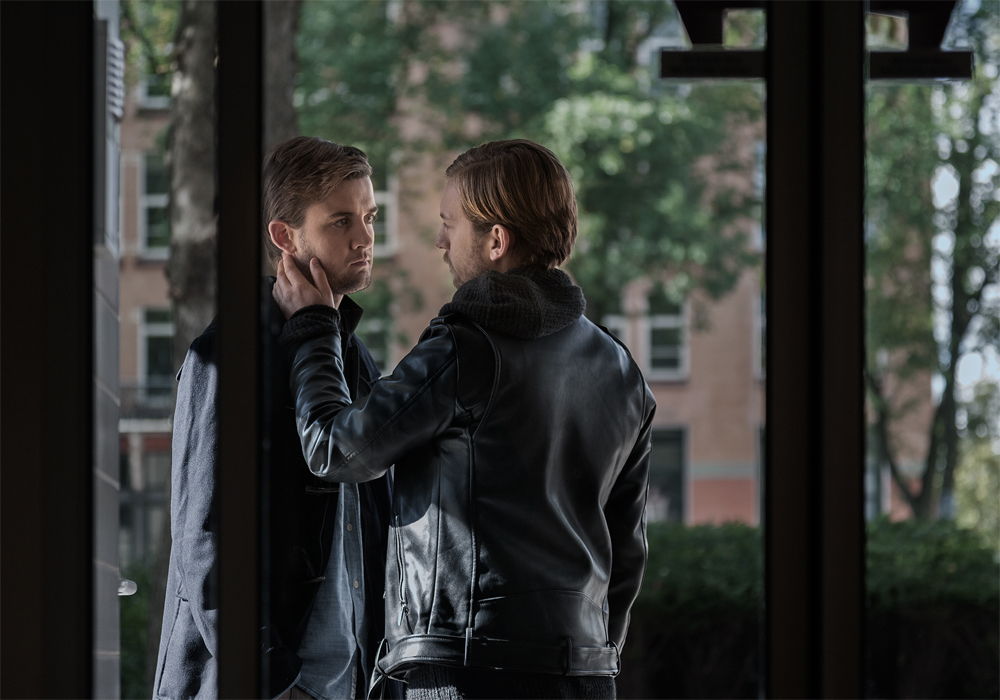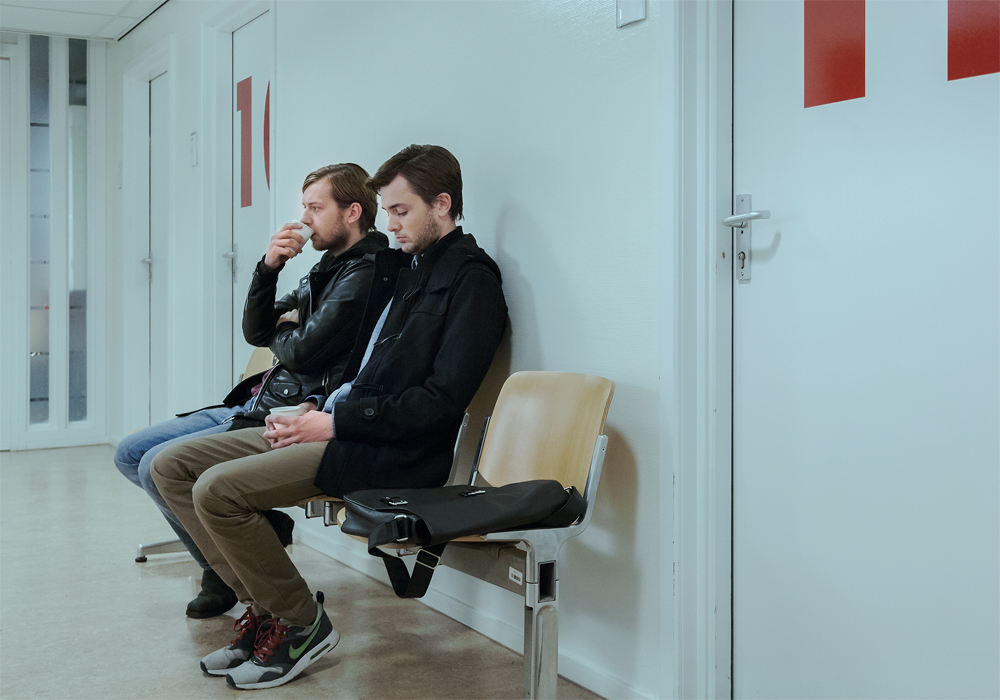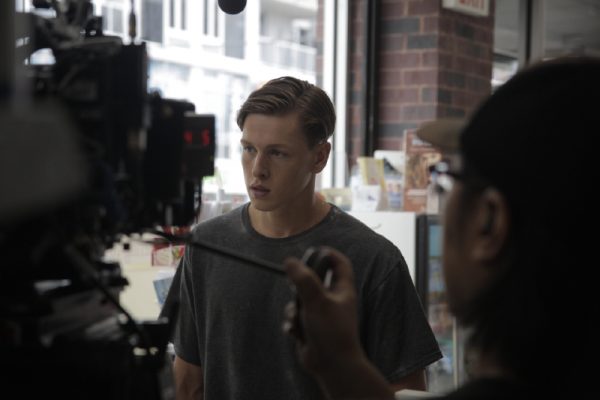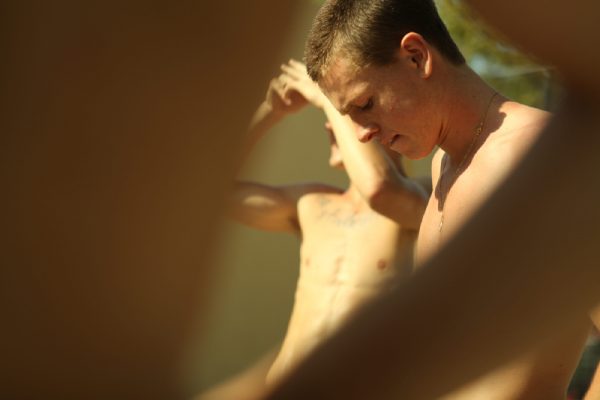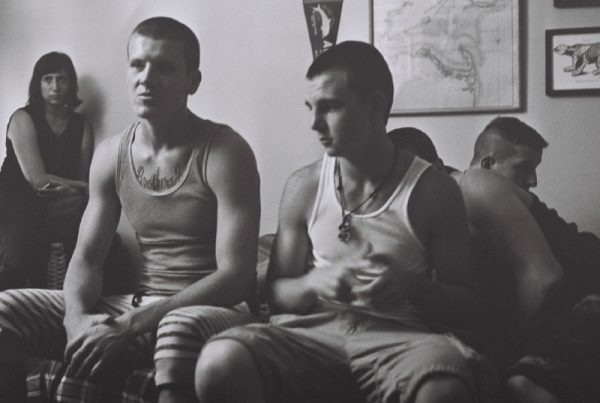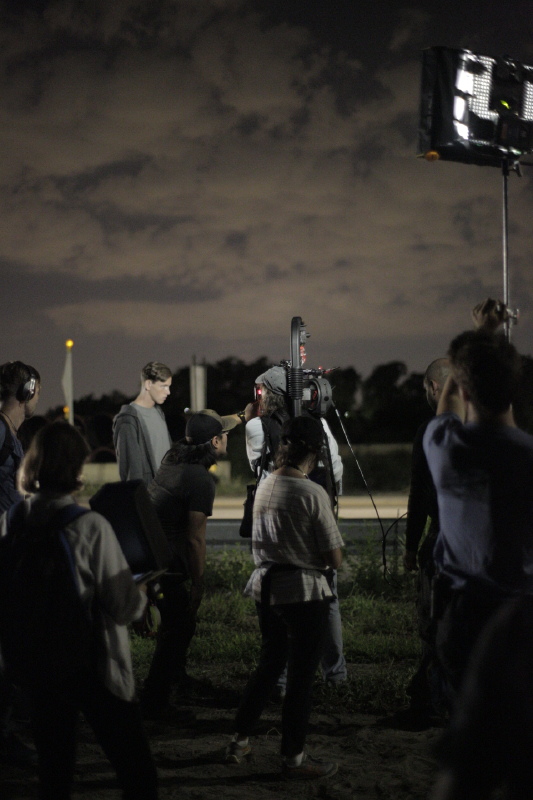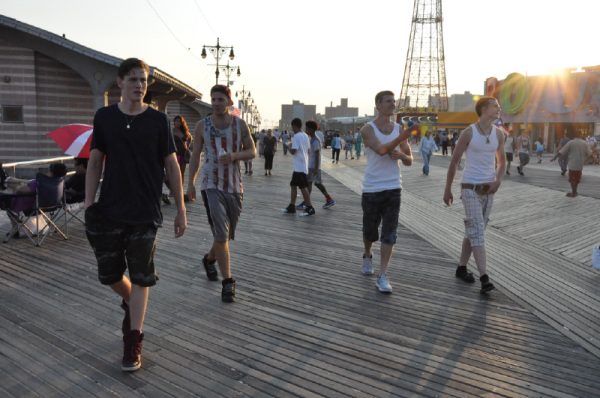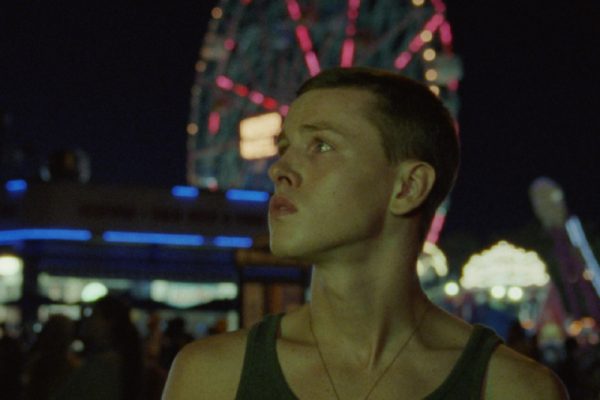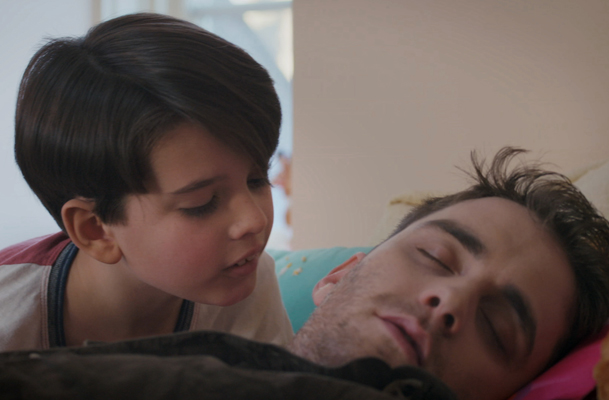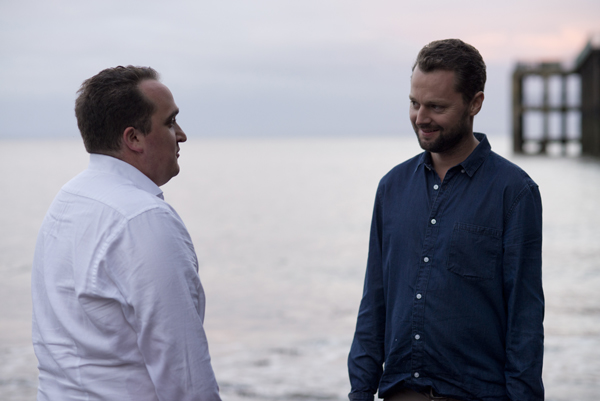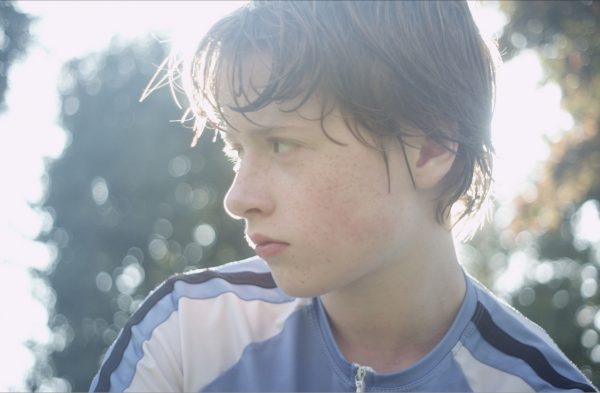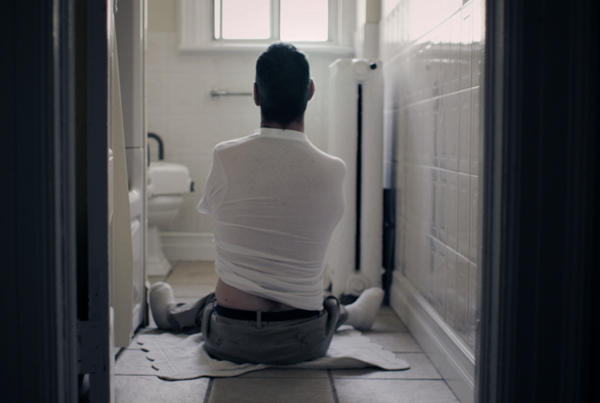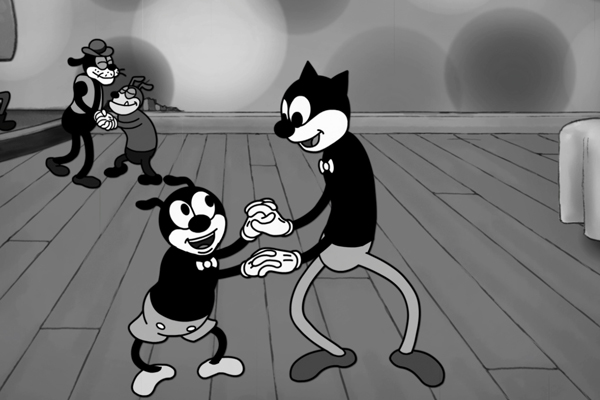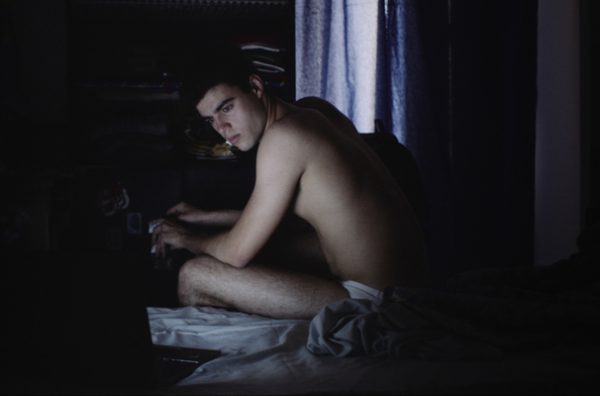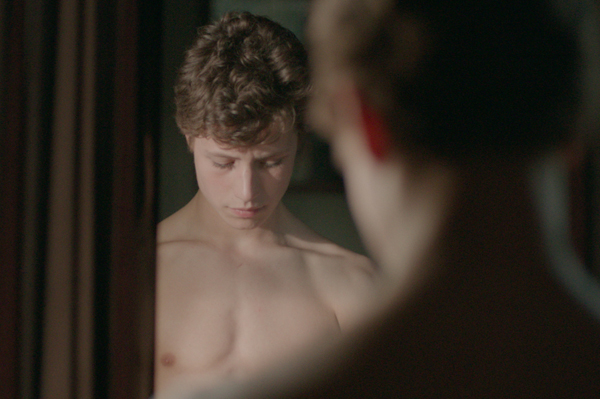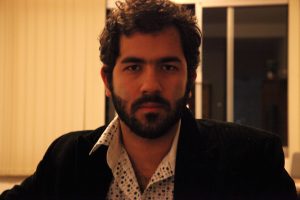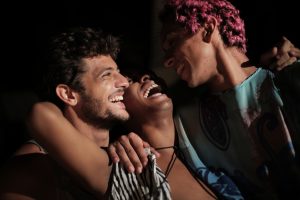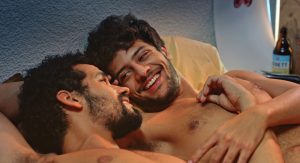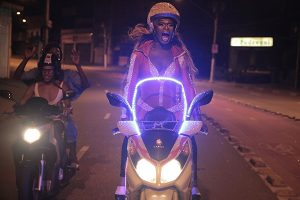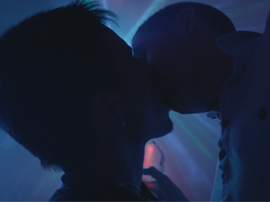We caught up with director Travis Mathews to talk about the origins of DISCREET his chilling new thriller that is being distributed by Peccadillo.
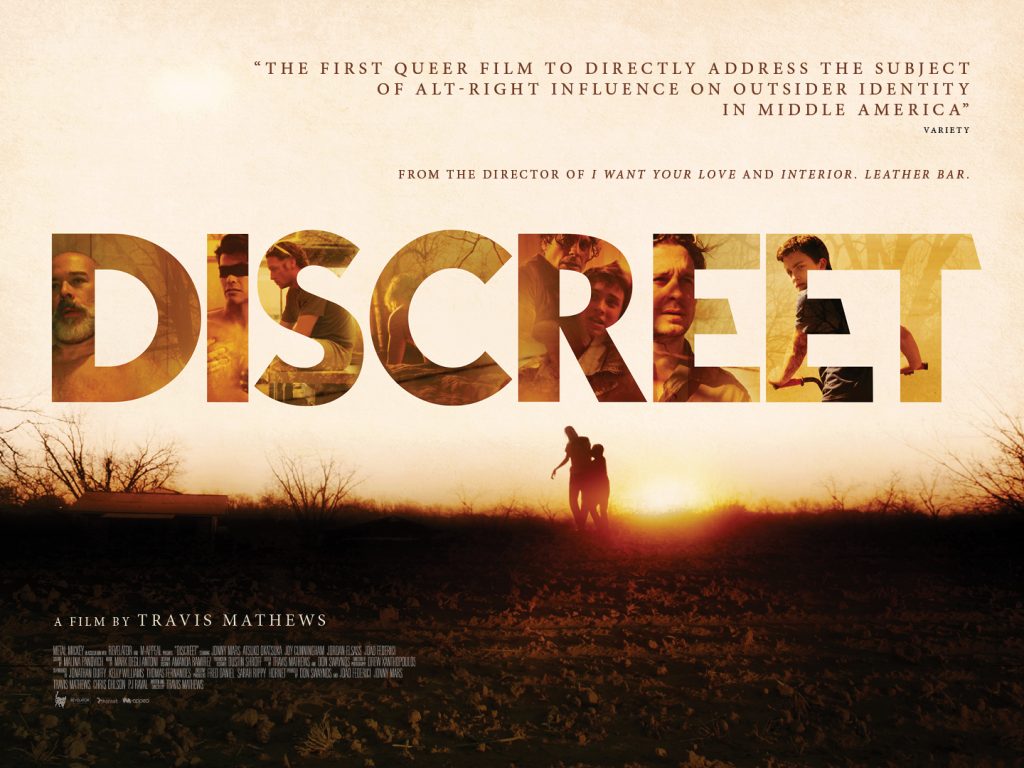
What was the genesis of this project?
Late in the summer of 2015, I had just stepped away from a much-delayed project and needed to do something that felt urgent and unafraid.
I dropped into my surroundings and listened to what was going on around me. At the time, I was driving around central Texas in a borrowed van that was a radio/cassette situation, so I indulged in
talk radio. Having grown up in rural Ohio, I was familiar with the A.M. dial, but what I heard sounded noticeably different, like the drumbeat to war. There was an unhinged desperation in these
voices and the rumbling sounds of the “alt-right”.
If these conservative voices were to be believed, some justifiable violence against “outsiders” seemed imminent. White, rural America was prepared to make their country great again!
The zeitgeist was so thick with unease, I wanted to write something that embodied this kind of “nation on the edge” anxiety. I set out to write a story that explored the ways in which populist insecurities about losing power intersected with, and informed, individual views on masculinity and sexuality. Alex, the hero in the film, is a distillation of this caustic soup. He’s unwell, to put it mildly.
As Alex’s mental state came into focus, every creative and editorial choice was made to service his cinematic representation. For me, this is one of the most exciting parts of the process. As a character comes into view, especially one as complicated as Alex, there’s a real joy in discovering what visual or sound expressions would most represent him. It’s also a process that brings real cohesion to the filmmaking team because we start to share ownership of this vision.
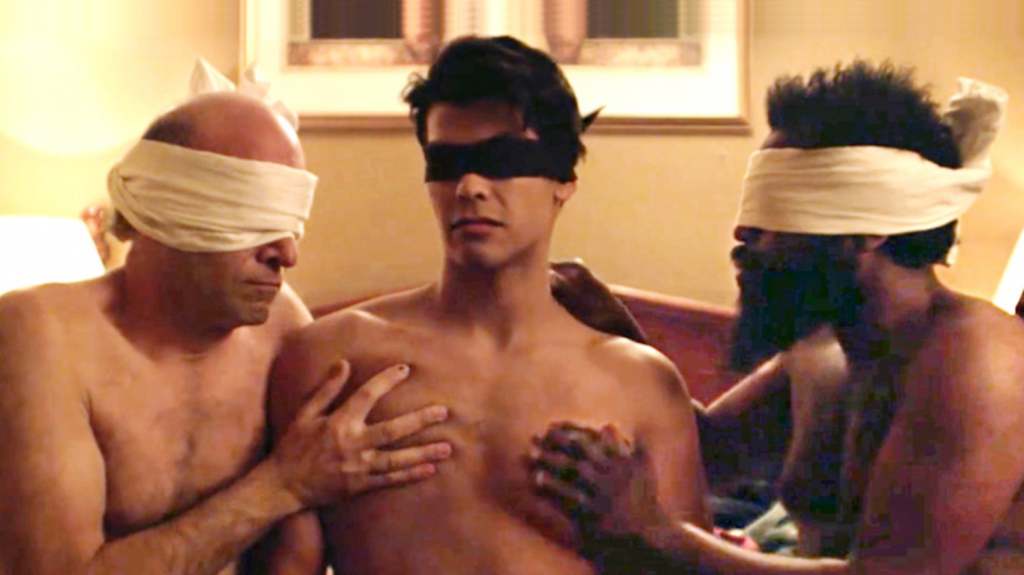
How does this film comment on contemporary gay male sexuality?
In Texas towns, both big and small, I turned on gay hookup apps like Grindr and Hornet to see how 2015 was translating among locals. I expected to find closeted guys, but I wasn’t prepared for the degree of racism, internalized homophobia, and the general fear of being seen, that was rampant. What fascinated me most were the profiles labeled discreet, and the men hiding behind black boxes in lieu of faces or even anonymous torsos. Shame was feeding the darkness, amplifying mythologized ideas of what a real man should be. It was the same wholesome mythology being propagated by rural -assumed straight- white conservatives.
Many of these guys on the apps are no different than the men on conservative radio. They’re both terrified of being outed as a lesser version of this kind of a Marlboro man ideal. It’s fear of being emasculated. And as demographics shift, turning America more brown, more tolerant, more fluid and more urban, their entire way of life is felt as under attack. This is how I understand the right’s
perverse and draconian actions and also the black boxes men hide behind.
This film delves deeply into one man’s brutal psyche – what was your cinematic process to create and visualise his internal world?
I think in all my work I’ve put a premium on men who express vulnerabilities very candidly. I’ve
explored this with sex and intimacy, but also in terms of loneliness and isolation. In Discreet, these same themes are explored with Alex, while I’ve also tried to make him an amplified reflection of the zeitgeist. As we all know, it’s pretty damn dark out there. But to be honest, Alex initially entered my head much more innocently. I was at Barton Springs in Austin with one of my producers, just riffing off of each other in the water. It was a little like a Richard Linklater moment, which I think is hilarious, thinking back. Anyway, my producer tells me about this Texas guy who films construction sites, dump truck videos more specifically, and has millions of views. It’s just one camera set up, one shot, for hours. He has all sorts of videos that take distinct sounds and/or images and puts them on a multi-hour loop. An early favorite of mine is a looping 8-hour video of bacon frying. Something really clicked with that one, so I started imagining the kind of person who would think to film this. That’s where my exploration of Alex started, before I knew anything else about him. He could have had a quirky romantic comedy in front of him, but it didn’t turn out that way.
His videos were my first entry point, and where I let my mind wander. When it clicked that his videos were actually a strange attempt to find calm, control, and some sort of psychic peace, it started to make sense with the zeitgeist and his character started to emerge. All around us, there’s the sense that something bad is coming, it feels like dread, like the setup to a dystopian thriller or a horror movie. And it’s only gotten worse since I wrote the early drafts of Discreet. This kind of madness in the air had a real impact on the evolution and the final outcome of the film. Initially, the story was more overtly political, more linear and more violent. But as months passed between the summer of 2015 up to the weeks following the US presidential election, the story of Alex started to take on a more surreal and restrained kind of internal horror. He – like most of us – was trying to survive this onslaught of crazy the best he knew how.
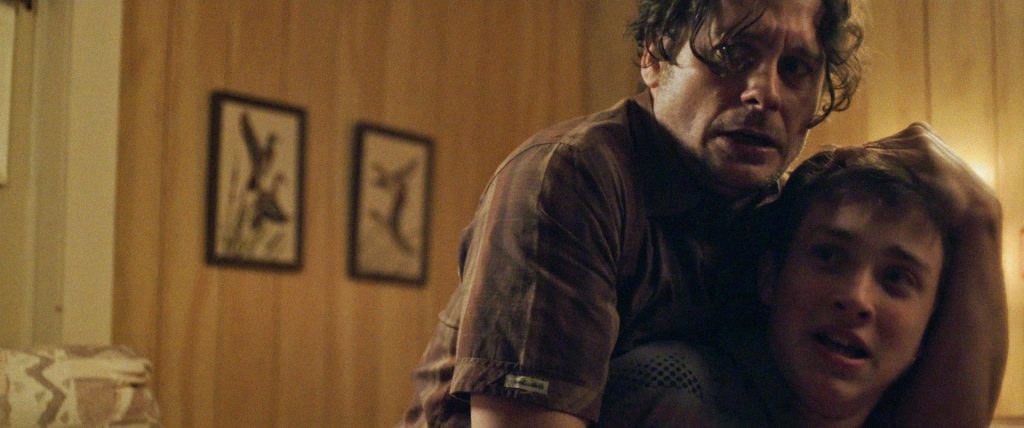
Jonny Mars’ central performance as Alex anchors the film – what was your collaborative process like?
Jonny and I were introduced by the filmmaker, and mutual friend, Kat Kandler. She and Jonny had worked together on Kat’s great Hellion short, where Jonny plays an aging heavy-metal God trying to do right in the world. That was my introduction to Jonny Mars. And when I started to share the bigger ideas of who I thought Alex was, and could be, almost everyone suggested that I connect with him. We were in different cities at the time, so before meeting, we spent a lot of long phone calls just deep diving into politics. Jonny’s really smart, and fully committed to his strong moral compass. He’s also up to do virtually anything on film, if it’s a smart choice that’s right for the character. This was reassuring because I knew from the start that “Alex” would be in some fucked up situations and head spaces.
Jonny jumped into the pool and we became fast friends. We also shared the same sense of urgency about making a film that would speak to this moment. It quickly made sense to bring Jonny even closer, and to have his involvement as a producer. Jonny, myself, and Don Swaynos – our tireless lead producer – were at the center of constructing Alex all the way through, and despite the heavy nature of the film, we tempered it with a lot of playfulness. Both Don and Jonny wore a lot of hats. Jonny, in particular, was somehow able to deliver these gutting performances then switch on a dime with production notes for something unrelated, and happening on another day. I also think that because we were independent, we had the creative freedom to go bold, which is what was required for this story to work. It’s that kind of creative freedom that allows a cohesive team to purr.
What does your film say about technology as something that is alienating society?
There’s a lot of isolation and long-distance attempts at intimacy via strange uses of technology in the Discreet world. It’s almost like traditional coping methods and ideas of intimacy have been proven to be ineffective and Alex is trying out new ones with imperfect results. The connections in Discreet seem transactional, based on primal needs for survival. It’s as if simple desire has become
so scarce that it’s maybe not to be trusted. And you see how that tug of war over desire plays out in Alex’s head. He’s tortured by it and distrustful of it.
As a country, I see us increasingly moving in this protectionist direction, which drives personal isolation and nativist tendencies. There’s the sense that things aren’t good out there, so close the borders, close your doors and just sit with your phones. What’s real, who can you trust? A lot of rational minds feel like we’ve entered a new epoch, and it has the smell of 1984 or Brave New World. There’s so much free-floating anxiety in America right now, that many people’s impulse is to cave inward and to isolate. Alex is a manifestation of all this.
What are your cinematic / aesthetic influences for this film?
Early on we were quite attuned to the Travis Bickle Taxi Driver nature of Alex. I also took deep dives into psychological thrillers like Polanski’s apartment trilogy, and horror, e.g., The Texas Chainsaw Massacre. While I was writing, I binge-watched How to Make a Murderer. Many of my initial dream locations came from freeze frames in that series. The rural community it depicts has a perverse loyalty to maintaining power at any cost, even at the risk of destroying lives. It’s a theme echoed in Discreet.
Unrelated to movies, I was obsessed with the freeways in Texas. Beyond being synonymous with America, the Texas freeways (the interchanges especially) always seemed unnecessarily jumbo-sized. As someone who lives in San Francisco and hasn’t owned a car in almost 20 years, I’m sure it was amplified for me, but it all seemed a little ridiculous. Because Alex is a drifter who lives out of his van, always on the road, it made sense to pay more attention to the freeways in the film’s world. Here are these man-made monsters, an expression of Texas muscularity, that Alex can’t get away from. In almost every location in the film, the freeways are always looming or threatening to strangle.
DISCREET can be seen as both a timely and timeless statement not only one man’s violent internal struggle, but an allegory on social strife in America and even the world. What are your thoughts on this viewing of your film?
By now, we all know that there are populist movements happening around the world, especially in Europe. Right wing nationalists are securing power with the rabid support of voters who feel pushed out by globalization. And this is so often done by appealing to people’s base desire for scapegoats, simple, answers, and fairytales about reverting back to a “more pure” time. From Texas to France, these are mythologies about national muscularity, brute masculinity that doesn’t
answer to anyone.
So, despite the film’s focused critique of America, with few changes Alex could be a Frenchman or an Englishman struggling with the same issues. These “patriarchy on the run” mythologies are not the exclusive domain of America.

Travis Mathews






